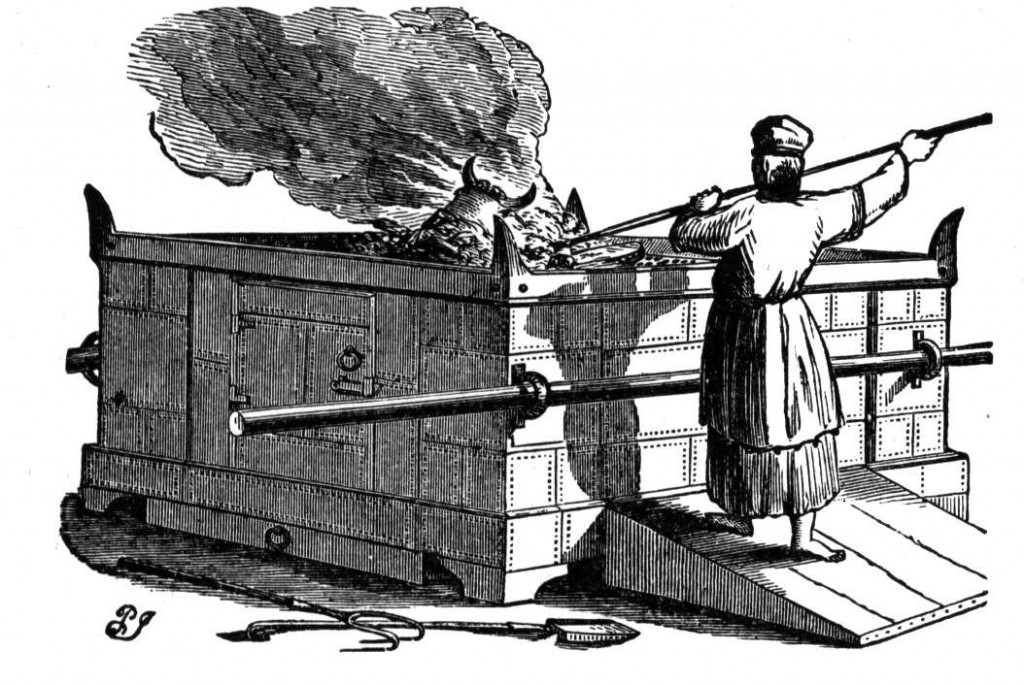When Will Jerusalem Have Continual Burnt Offering
Exodus 29:38–42, In the morning…at twiligh t. (See also Lev 1:1–17 and Num 28:1–15.) This twice daily offering was known as the continual burnt offering (Heb. olah tamiyd), and was offered at the door of the tabernacle (verse 42). The word continual (Heb. tamiyd) means "continually." The Hebrew word for burnt offering is olah meaning "ascent, stairway or steps," and derives from the basic Hebrew verb, alah, meaning "to go up, climb or ascend."

In this offering, the fire consumes the entire animal, and the word olah refers to the smoke of this whole burnt offering ascending to heaven, which is a "sweet aroma" to YHVH (verse 41). The o lah was an offering or gift (Lev 1:2, Heb. qorban) to YHVH and could be a bull, goat, ram, turtle dove or a pigeon as long as it was a perfect specimen without defect (Lev 1).
If an Israelite sinned, he could bring this gift-offering to the door of the tabernacle where he would place his hands upon the head of the animal, after which the priests would slaughter it, and sprinkle its blood around the altar of sacrifice just inside the door of the tabernacle (Lev 1:2,4,5). The meat was then prepared and arranged on the altar and entirely burnt (Lev 1:6–17). When the sinner laid his hands on the animal, it was as if he were transferring his sins onto the innocent, blemish-free animal, where upon YHVH accepted it as an atonement for the person's sin (Lev 1:4).
The writer of Hebrews clearly teaches that this offering (along with all the other offerings in the sacrificial system) pointed to Yeshua, our Great High Priest, whose atoning death on the cross fulfilled all the types and shadows of the Levitical, sacrificial system (Heb 4:14–5:7; 7:1–10:18).
Besides the obvious antetypes pointing to Yeshua's death on the cross, what else can we learn from the olah tamiyd offering rituals? What are the spiritual implications and the lessons to be learned for the redeemed believer living in the twenty-first century? Matthew Henry in his commentary on Numbers 28:1–8 sums it up very nicely:
The particular law of the daily sacrifice, a lamb in the morning and a lamb in the evening, which, for the constancy of it as duly as the day came, is called a continual burnt-offering (v. 3), which intimates that when we are bidden to pray always, and to pray without ceasing, it is intended that at least every morning and every evening we offer up our solemn prayers and praises to God . (emphasis added)
This olah tamiyd sacrifice was connected to the rising and setting of the sun as implied by the words of the psalmist (Ps 113:3). At the same time, the priest was to burn incense on the incense altar (Exod 30:7–8) as part of the olah tamiyd sacrifice.
The biblical writers foresaw a time coming when either there would be no tabernacle or temple in which to offer the sacrifices and incense, or the designated place of worship would be inaccessible to the Israelite. In this situation, Hosea admonishes sinful Israel to return to YHVH and to offer up the sacrifices (lit. the calves or young bulls) of our lips, while expecting Elohim to graciously receive them and take away their iniquity (Hos 14:2). Paul embraced this idea when he admonished the saints to become as "living sacrifices…unto Eohim" (Rom 12:2). In John's vision of heaven, he sees the prayers of the saints as being like sweet smelling incense before the throne of the Almighty One (Rev 5:8). Not only does YHVH view the prayers of the righteous as incense, but their praises of him as a sacrifice or a thanksgiving offering as well (Jer 33:11; Heb 13:15). The psalmist goes on to connect the dots between the olah tamiyd sacrifice, incense, prayer and praise when he writes,
Let my prayer be set forth before thee as incense; and the lifting up of my hands as the evening sacrifice. (Ps 141:2)
How is the non-priest to offer incense before YHVH? This is done through prayer and worship. The prophet Malachi offers an answer:
For from the rising of the sun even unto the going down of the same my name shall be great among the Gentiles; and in every place incense shall be offered unto my name, and a pure offering, for my name shall be great among the heathen, saith YHVH of Hosts. (Mal 1:11)
The Torah prohibits offering sacrifices anywhere YHVH has not placed his name. What's more, Yeshua has fulfilled the sacrificial system by his death on the cross once and for all, and has become our Great High Priest. So how then do the nations offer up sacrifices in every place as Malachi prophesies except by prayer and praise? The same is true, of course, for redeemed believers who are now part of Yeshua's royal priesthood as Peter testifies:
Ye also, as lively stones, are built up a spiritual house, an holy priesthood, to offer up spiritual sacrifices, acceptable to Elohim by Yeshua the Messiah. (1 Pet 2:5)
However, since there is no longer either a temple or a Levitical priesthood, yet the saints are called priest of Yeshua (Rev 1:6; 5:10; 20:6), how shall we as the saints of the Most High fulfill our priestly duties if not by serving our Master Yeshua through our twice daily prayer and praise?
Source: https://hoshanarabbah.org/blog/2013/02/23/the-twice-daily-sacrifice/
0 Response to "When Will Jerusalem Have Continual Burnt Offering"
Postar um comentário